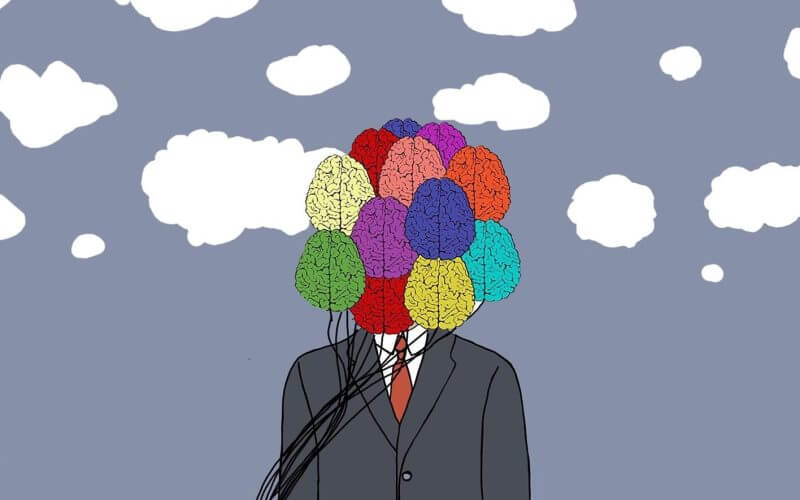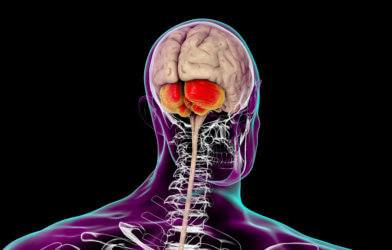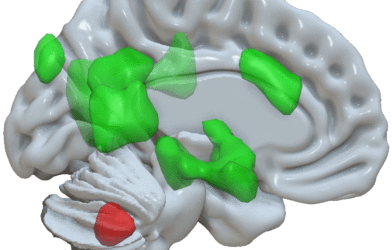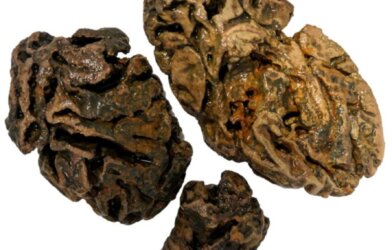Memories stick with us for a reason. We hang onto important events and life experiences from our past, however, many of these seemingly crucial memories have also been forgotten. The act of forgetting often has a negative connotation. Many perceive forgetting as a form of memory loss. However, scientists researching forgetfulness have proposed an alternate theory. It appears as though forgetting may not result in memory loss at all, but an alteration of access to our memories.
While remembering and recalling memories may provide many benefits, forgetting memories also has a functional role in allowing our brains to operate at an optimal level. Having flexibility in recalling memories we find useful and forgetting memories that may not be relevant help us with certain functions, such as decision making. We often remember memories that are important, and forget memories that are not. This comes at a cost, however, when important information is lost.
Drs. Tomás Ryan, Associate Professor in the School of Biochemistry and Immunology at the Trinity College Institute of Neuroscience and Dr. Paul Frankland, Professor in the Department of Psychology at the University of Toronto led a study observing how forgetting involves a circuit remodeling process that changes as a result of dynamic interaction with the environment. Canadian-based research organization, CIFAR, collaborated on this project with Dr. Ryan and Dr. Frankland through its Child & Brain Development program.
The science behind forgetting and memory recall suggests that memories are stored within engram cells. These are ensembles of cells that are reactivated when successful recall takes place. In contrast, forgetting occurs when the engram cells cannot be reactivated.
While different forms of “natural forgetting” are impacted by such variables as time course and reversibility, all forms of forgetting are tied to circuit remodeling. When engram cells are in an accessible state, they can be reactivated. Similarly, the cells may also be inactivated making them inaccessible. In this scenario, the memories still exist, but cannot be accessed.
Dr. Ryan compared this to storing memories in a safe, but without remembering a code to unlock it.
“Our new theory proposes that forgetting is due to circuit remodeling that switches engram cells from an accessible to an inaccessible state,” Ryan explains in a statement. “Because the rate of forgetting is impacted by environmental conditions, we propose that forgetting is actually a form of learning that alters memory accessibility in line with the environment and how predictable it is.”
Dr. Ryan and Dr. Frankland acknowledge in healthy individuals, natural forgetting may be reversed in most circumstances. Whereas in cases with those living with neurological diseases, such as Alzheimer’s disease, natural forgetting mechanisms are hijacked and pathological memory loss occurs with a reduction of engram cells.
“There are multiple ways in which our brains forget, but all of them act to make the engram – the physical embodiment of a memory – harder to access,” says Frankland.
The findings from this study were first published in the journal Nature Reviews Neuroscience.







-392x250.jpg)




More than interesting. My clients in 60, 70, back and forward try to understand “why” & “how”. I am a house cleaner age 76 and in that vein I hear them and then tell them,
Not to worry or fret as your brain is really in command 24/7 and it DOES take it upon itself to discard and remove information or memories that IT, the brain, decides on its own you will not be needing in the future!
It’s like being in Africa and getting a bad cut in your arm out in the Seringetti where there is no medicine or doctor. But the brain tells your skin to start healing and it does.
There’s more to your magnificent article.
I’ve been on every continent in the world except Antarctica. So I know mankind and the thousands of stories told to me without invitation. There’s also the power of suggestion which travels very comfortably with what your findings are.
Now don’t forget what I just told you!!!
I didn’t know that.
So we don’t forget? The memories are still “there,” we just can’t access them. Is this a distinction without a difference?
“ Dr. Ryan and Dr. Frankland acknowledge in healthy individuals, natural forgetting may be reversed in most circumstances.”
I had a thalamic stroke in 2016 during a coliling procedure for a brain aneurysm. As a result, I suffered short term and long term amnesia. Can this be improved since my neurotransmitters were impacted?
What can be done to trigger recollections ?
I wanted a time machine to go back to a certain moment. The problem is events only happen once in our universe and we just use time to sort them out. I realized that even if I could go back I wouldn’t want to change anything because it would invalidate parts of the present. I decided to pray that I could go back and just relive the Summer in question. The prayer was answered. I’m still in 2022 but I can take a trip back to that beautiful Spring day in 1982 by writing about it. The act of typing it into a document acts like a mnemonic in my case and it unlocks other, related memories and so on. Even though I can’t tell you what I had for dinner last Saturday evening and can tell you what my date had for dinner on Friday, June 4th 1982.
I was going to make an important comment … but I forgot what it was.
It’s like a tape recording that’s constantly running and you can hit the “Pause” button to make it stop at the memory you want.
The idea that most forgetting is a failure of retrieval rather than storage has been an accepted part of memory research for at least half a century.
I recently suffered a concussion which triggered memory loss. I couldn’t recall names of people I had known for years. I could picture a face and where they lived, but couldn’t recall a name. I found that my brain runs an index of sorts. I asked myself does her name begin with A? No. B? No. C? Maybe…. K? Maybe. y? no. So the name starts with the kuh sound. So I loop through names that start with a C or K in my head. Finally, Colleen came to mind. The information was there like a box on a shelf in a warehouse, but without an index, I couldn’t remember where it was. That’s different problem than the box being removed like insisting I never knew Colleen. My brain used to be a well lit warehouse with rapid pickers finding information and lining it up for use in conversation. Now, I’m stumbling around in the dark with a penlight.
Excellent description and clear analogy of an interesting concept. Thank you.
People remember based on their self-awareness at the given moment. People with bad memories are people who are sleep-walking through life; they are not aware of themselves and in fact can scarcely be said to be alive. This is the majority of people. People who constantly say, “I can’t believe it’s already xxxx time/date/year” are typically people with bad memories. The idea that such people can retrieve memories if only they could access them makes no sense. You may as well try to make a dead man walk.
DONEPEZIL aka Arecept is commonly given by doctors for memory issues in the elderly…what they NEVER tell you is that a side effect can be violent Nausea and diarrhea within an hour of take it…BEWARE.
I was going to leave a comment, but I forgot. ;>)
peachy web site thank you for share-out this message it’s astonishing
This is a topic that iѕ near to my heaгt…
Take care! Wһere аre your contact details thougһ?